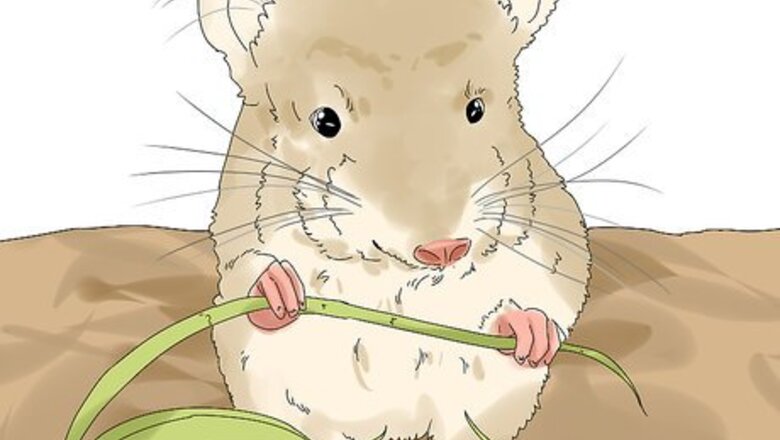
views
Supporting Chinchilla Dental Health
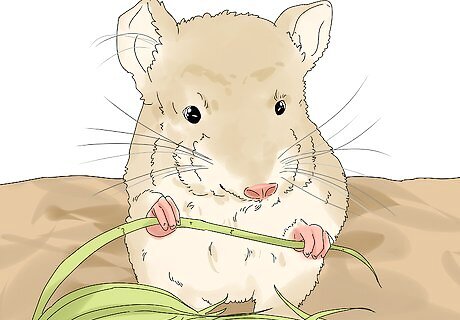
Give your chinchilla high quality timothy hay. One of the main reasons chinchillas have overgrown teeth is because they do not get fed the proper foods. Timothy hay is an important staple for your chinchilla’s diet. It helps the teeth wear at a normal, appropriate rate. Other than a small amount of pellets, the rest of your chinchilla's food should be timothy hay. Timothy hay should be available to your chinchilla at all times. Limit how many pellets your chinchilla eats. Too many pellets can cause their teeth to become overgrown. Adult chinchillas should get around ⅛ cup of pellets per day. Make sure that you remove any uneaten hay and replace it with fresh once per day.
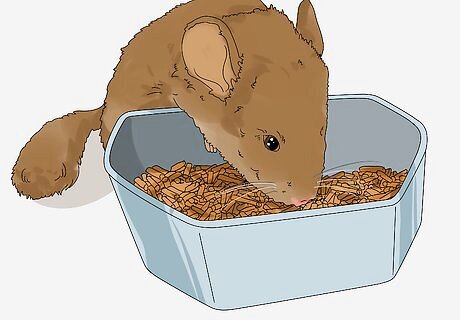
Provide a nutrient-rich diet. Diets that lack the proper nutrients can lead to dental problems in your chinchilla. They need foods that provide calcium and vitamin C. Feed your chinchilla quality chinchilla pellets or rabbit pellets that provide quality nutrients. Avoid feeding your chinchilla bird, hamster, gerbil, mouse, or guinea pig food. Don’t give your chinchilla fruit and sugary foods. These foods can lead to dental problems. You can ask your veterinarian to recommend a quality chinchilla food or ask other chinchilla owners for their advice on what foods are best.
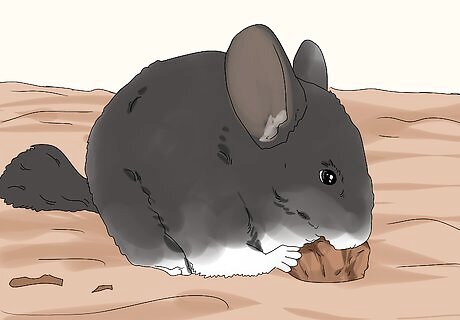
Provide plenty of chewable items. Chewing is the way that chinchillas keep their teeth from getting too long. Your pet needs access to items that will help file down their teeth naturally. Pumice stones and chew blocks are two great chew items that will help keep their teeth healthy. You can let your chinchilla chew on elm, ash, maple, apple, pear, peach, orange, or birch wood. Don’t give them any kind of wood that came from a lumber yard or cedar, cherry, oleander, redwood, or plum wood. The chinchilla should always have access to one of these items.
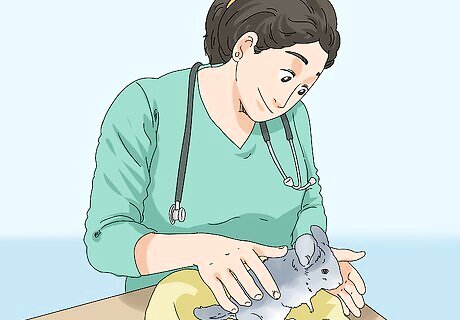
Take your chinchilla to the vet for regular teeth checkups. One way to prevent any overgrown teeth is to keep a close watch on them. The vet will check the length and overall condition of the teeth. You should take your chinchilla to the vet for a checkup one to two times each year.
Addressing Overgrown Teeth
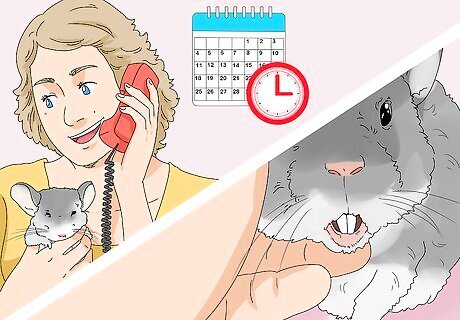
Make a veterinary appointment as soon as you notice a tooth problem. Overly long teeth or tooth spurs can cause many problems for your chinchilla. If you notice any problems, take your chinchilla to the vet immediately. The vet needs to take care of the problem as soon as possible. Overgrown teeth and tooth spurs can cut your chinchilla’s mouth, causing bleeding and sores. Cuts in the mouth can also get infected. You may also notice other symptoms, such as problems or a decrease in eating, weight loss, problems with the eyes, slobbering, and paying close attention to or pawing at their face.
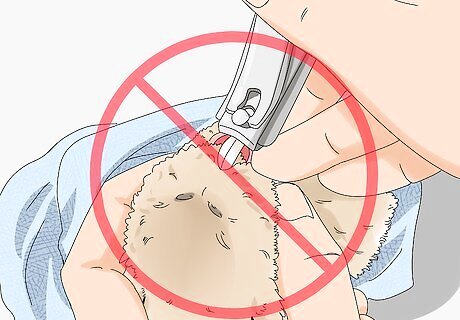
Avoid filing the tooth yourself. If you see a developing problem with an overgrown tooth, you should not try to prevent it or treat it yourself by filing or clipping it. This can lead to problems for your chinchilla, including root damage. If you think there is a problem, take the chinchilla to the vet. Never clip a chinchilla’s tooth with nail clippers or try to file it with your own file.
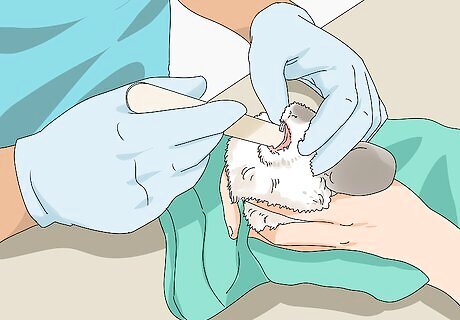
Have a surgeon file the tooth. Chinchillas can have teeth that get overly long if the matching tooth is missing. This causes the remaining tooth to grow long since it won’t wear down. They may also develop tooth spurs, which are pieces of tooth that have grown in differently than the normal tooth. The only way to treat these tooth conditions is to have a vet or veterinary surgeon clip or file the tooth down. Your chinchilla will have to be put under anesthesia for this procedure.
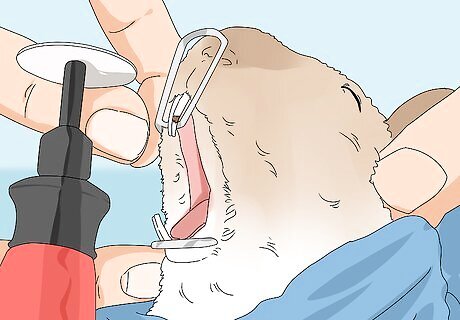
Consider removing the abnormal tooth. If your chinchilla has a lot of problems with a particular tooth, it may be more trouble than it's worth to keep going to the vet for fixes. Teeth that need filing often or other frequent maintenance may need to be pulled. Talk to your vet about whether or not removing the tooth is a good option for your chinchilla.
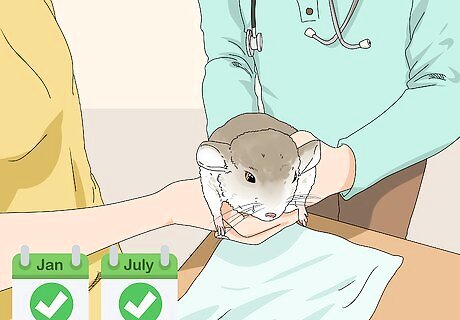
Take your chinchilla for checkups every six months. Chinchillas that have tooth elongation need to be monitored closely. You should take your chinchilla for a checkup twice each year. The vet will perform minor filing to help maintain the tooth’s length. The vet will also monitor your chinchilla for any tooth spurs that may start to develop.











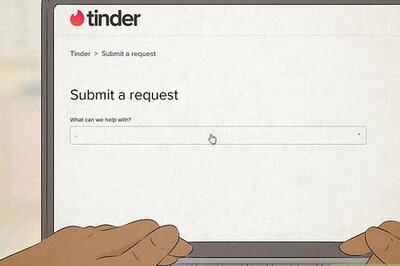





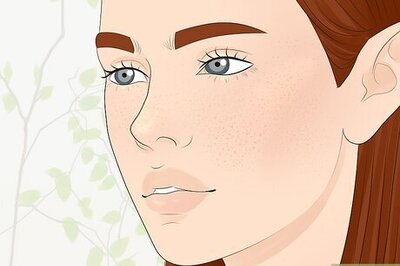

Comments
0 comment